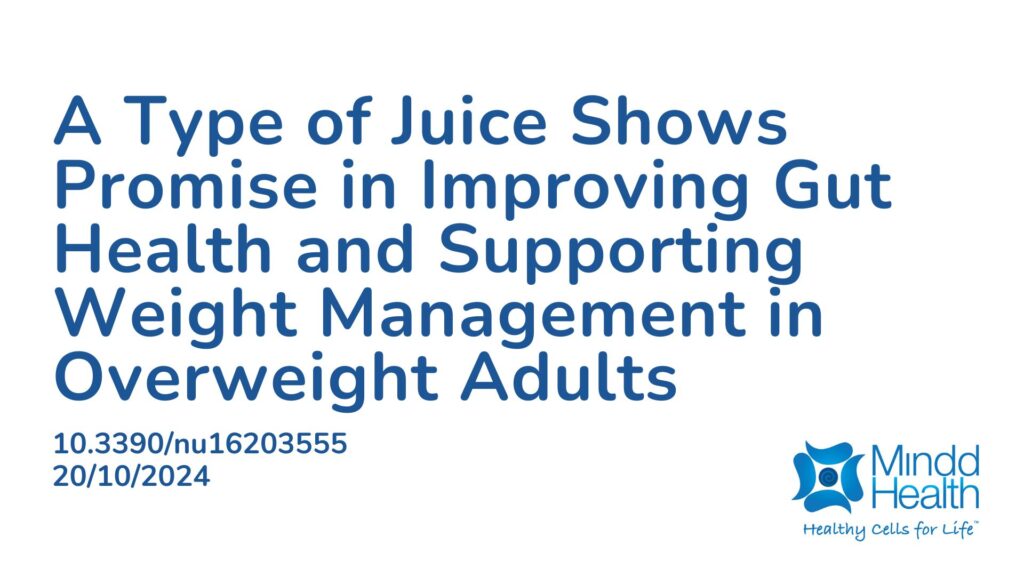Summary:
This randomized, placebo-controlled study aimed to assess whether elderberry juice (EBJ), rich in anthocyanins, could replicate the metabolic benefits seen with other berry anthocyanins, particularly in weight management. Overweight or obese adults were given either EBJ or a placebo for two one-week periods. Results showed that EBJ increased beneficial gut bacteria such as Faecalibacterium and Bifidobacterium, and reduced harmful bacteria. Additionally, EBJ improved blood glucose levels and increased fat oxidation during both meal testing and physical activity. These findings suggest EBJ may support metabolic health and obesity management, though further research is needed for longer-term effects.
Abstract:
Obesity is a costly and ongoing health complication in the United States and globally. Bioactive-rich foods, especially those providing polyphenols, represent an emerging and attractive strategy to address this issue. Berry-derived anthocyanins and their metabolites are of particular interest for their bioactive effects, including weight maintenance and protection from metabolic aberrations. Earlier findings from small clinical trials suggest modulation of substrate oxidation and glucose tolerance with mediation of prospective benefits attributable to the gut microbiota, but mixed results suggest appropriate anthocyanin dosing poses a challenge. The objective of this randomized, placebo-controlled study was to determine if anthocyanin-dense elderberry juice (EBJ) reproduces glucoregulatory and substrate oxidation effects observed with other berries and if this is mediated by the gut microbiota. Overweight or obese adults (BMI > 25 kg/m2) without chronic illnesses were randomized to a 5-week crossover study protocol with two 1-week periods of twice-daily EBJ or placebo (PL) separated by a washout period. Each treatment period included 4 days of controlled feeding with a 40% fat diet to allow for comparison of measurements in fecal microbiota, meal tolerance testing (MTT), and indirect calorimetry between test beverages. Eighteen study volunteers completed the study. At the phylum level, EBJ significantly increased Firmicutes and Actinobacteria, and decreased Bacteroidetes. At the genus level, EBJ increased Faecalibacterium, Ruminococcaceae, and Bifidobacterium and decreased Bacteroides and lactic acid-producing bacteria, indicating a positive response to EBJ. Supporting the changes to the microbiota, the EBJ treatment significantly reduced blood glucose following the MTT. Fat oxidation also increased significantly both during the MTT and 30 min of moderate physical activity with the EBJ treatment. Our findings confirm the bioactivity of EBJ-sourced anthocyanins on outcomes related to gut health and obesity. Follow-up investigation is needed to confirm our findings and to test for longer durations.
Article Publication Date: 20/10/2024
DOI: 10.3390/nu16203555






